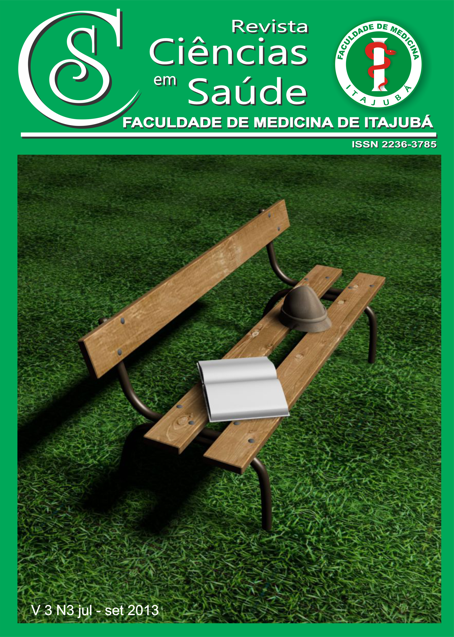O Discurso do Sujeito Coletivo Emergente de Médicos em Relação a Cuidados Paliativos/ The Collective Subject Discourse Emerging Physicians Regarding palliative Care
Main Article Content
Abstract
Objetivos: conhecer os significados e os sentimentos emergentes dos médicos em relação aos cuidados paliativos, bem como identificar a atuação desses profissionais frente aos pacientes com necessidades de cuidados paliativos numa instituição hospitalar da cidade de Pouso Alegre-MG. Materiais e métodos: o presente trabalho foi de abordagem qualitativa, do tipo exploratório e transversal. A amostra foi de 25 médicos atuantes no Hospital Universitário Samuel Libânio, Pouso Alegre, MG. A amostragem foi do tipo intencional ou teórica. A coleta de dados ocorreu por meio de entrevista semiestruturada e usaram-se as estratégias metodológicas do Discurso do Sujeito Coletivo (DSC) para a análise e tratamento dos dados. Resultados e discussão: do tema “significado de cuidados paliativos”, emergiram-se as ideias de cuidados diversificados, aliviar a dor e o sofrimento e proporcionar conforto. Do tema “sentimento ao prestar assistência”, as representações sociais dos médicos foram diversos sentimentos negativos, diversos sentimentos positivos e sentimentos ambivalentes. Sobre o “atendimento aos pacientes”, os médicos mencionaram as ideias de oferecer conforto e qualidade de vida, atendendo o paciente normalmente e dando atenção. Conclusão: A atuação profissional dos médicos abordados, em paliação, visa a oferecer conforto e qualidade de vida, mas se verifica que há uma diversidade de significados e sentimentos em relação aos cuidados paliativos na percepção destes profissionais.
Palavras chave: Cuidados paliativos; Medicina; Terminalidade.
ABSTRACT
Objectives: To know the meanings and feelings emerging of physicians in relation to palliative care, and to identify the role of these professionals against patients in need of palliative care in a hospital in the city of Pouso Alegre-MG. Materials and methods: This study was a qualitative, exploratory and cross. The sample consisted of 25 doctors working at the University Hospital Samuel Libânio, Pouso Alegre, MG. Sampling was the intentional or theoretical. The data were collected through semi-structured interviews and used up the methodological strategies of the Collective Subject Discourse (CSD) for the analysis and processing of data. Results and discussion: theme "meaning of palliative care," sprang up ideas diversified care, relieve pain and suffering and provide comfort. Theme "feeling to assist" the social representations of the doctors were many negative feelings, many positive feelings and ambivalent feelings. On the "patient care" physicians mentioned the ideas of comfort and quality of life, given the patient normally and paying attention. Conclusion: The role of physicians addressed in palliation, aims to offer comfort and quality of life, but it turns out that there is a diversity of meanings and feelings in relation to the perception of palliative care professionals.
Keywords: Palliative care; Medicine; Terminality.
Article Details
Authors maintain copyright and grant the HSJ the right to first publication. From 2024, the publications wiil be licensed under Attribution 4.0 International 
 , allowing their sharing, recognizing the authorship and initial publication in this journal.
, allowing their sharing, recognizing the authorship and initial publication in this journal.
Authors are authorized to assume additional contracts separately for the non-exclusive distribution of the version of the work published in this journal (e.g., publishing in an institutional repository or as a book chapter), with acknowledgment of authorship and initial publication in this journal.
Authors are encouraged to publish and distribute their work online (e.g., in institutional repositories or on their personal page) at any point after the editorial process.
Also, the AUTHOR is informed and consents that the HSJ can incorporate his article into existing or future scientific databases and indexers, under the conditions defined by the latter at all times, which will involve, at least, the possibility that the holders of these databases can perform the following actions on the article.
